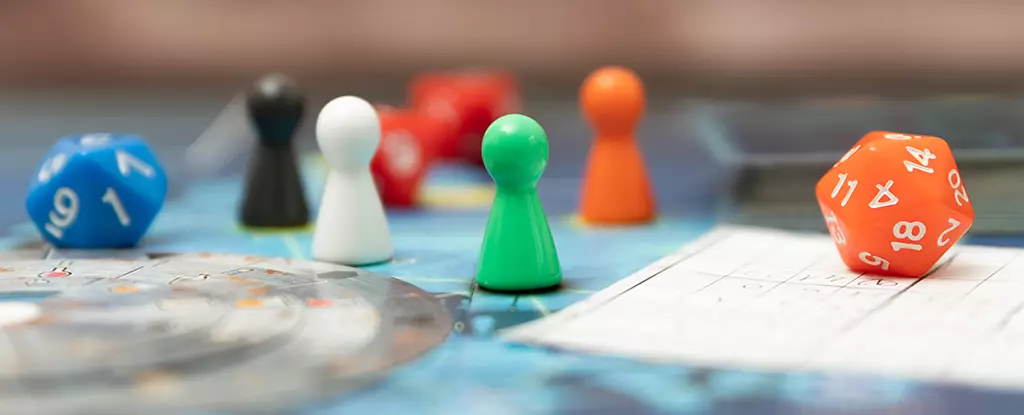As society progresses towards better understanding neurodiversity, various aspects of the autistic experience are being illuminated. Among these, a growing body of research indicates that individuals on the autism spectrum often find solace and enjoyment in hobbies such as board games. Recent studies from institutions like the University of Plymouth and Edge Hill University in the UK shed light on why this preference exists, revealing significant psychological and social benefits attributed to engaging with board games.
The findings from the recent research highlight an intriguing statistic: in a survey of over 1,600 board game players, 7% identified as autistic, a figure that significantly surpasses the general population’s representation of roughly 1%. This observation raises questions about the unique appeal board games hold for autistic individuals. One potential explanation is the structured environment that many board games offer. For people with autism, the rigid rules and predictable nature of gameplay can provide a comforting framework that mitigates anxiety. This structure likely appeals to a need for routine and clarity, allowing players to engage in social interaction without the ambiguity often associated with spontaneous conversations.
Social anxiety can be a prevalent challenge for those with autism. The researchers discovered that board games might serve as a safe refuge from the high-stress dynamics of socialization. Unlike face-to-face interactions, which can feel overwhelming, board games allow for meaningful engagement in a controlled milieu. The games typically require less small talk, and the focus is instead steered towards the mechanics of play and shared objectives. With familiar rules and focused activities, players can interact within a defined context that reduces the potential for fear and misunderstanding.
Psychologist Gray Atherton asserts, “Board games are a safe and valuable hobby to many people with autism.” By establishing a comfortable and educative framework for interaction, these games allow for the potential development of social skills without the pressure of traditional social situations.
An noteworthy observation from the studies is how board games allow autistic individuals to immerse themselves in a domain that fosters both challenge and success. The researchers found that games like “Codenames” and “Dixit” not only stimulate players intellectually but also provide a sense of accomplishment and community. Engaging with games that require strategy, creativity, and collaboration may give autistic players an opportunity to thrive and deepen their interests.
This phenomenon highlights the importance of developing activities that cater to the strengths of individuals on the autism spectrum. The enjoyment derived from board games underscores the critical balance between challenge and accessibility, a dynamic that can be the cornerstone of interventions designed for autistic individuals.
The long-term engagement in board games can also yield significant social benefits. Through both short sessions and years of gameplay, researchers noted improvements in independence and confidence among players. These interactions can help forge meaningful relationships, a challenging but crucial component of personal development for many autistic individuals. As the participants navigated shared objectives and cooperative strategies, they fostered connections that might have otherwise been difficult to establish.
Liam Cross, one of the researchers, emphasizes the value of tailoring interventions to meet the unique needs of each individual. “Everyone with autism is unique, and we want to ensure any interventions could be adapted as needed for those who might benefit.” This commitment to personalized approaches illustrates a growing recognition of the diverse abilities and challenges encountered within the autism community.
The culmination of this research presents exciting opportunities for further exploration. By examining how board games can bolster well-being and social connections, researchers aim to refine existing games to enhance accessibility for autistic players. With a focus on inclusiveness, future endeavors could reshape the gaming landscape to not only welcome but celebrate neurodiversity.
The studies from the University of Plymouth and Edge Hill University illuminate the profound impact that board games can have on individuals with autism. As society continues to foster understanding and acceptance of neurodiversity, harnessing the potential of structured, enjoyable activities like board games offers a meaningful way to enhance the experiences and quality of life for those on the spectrum.


Leave a Reply